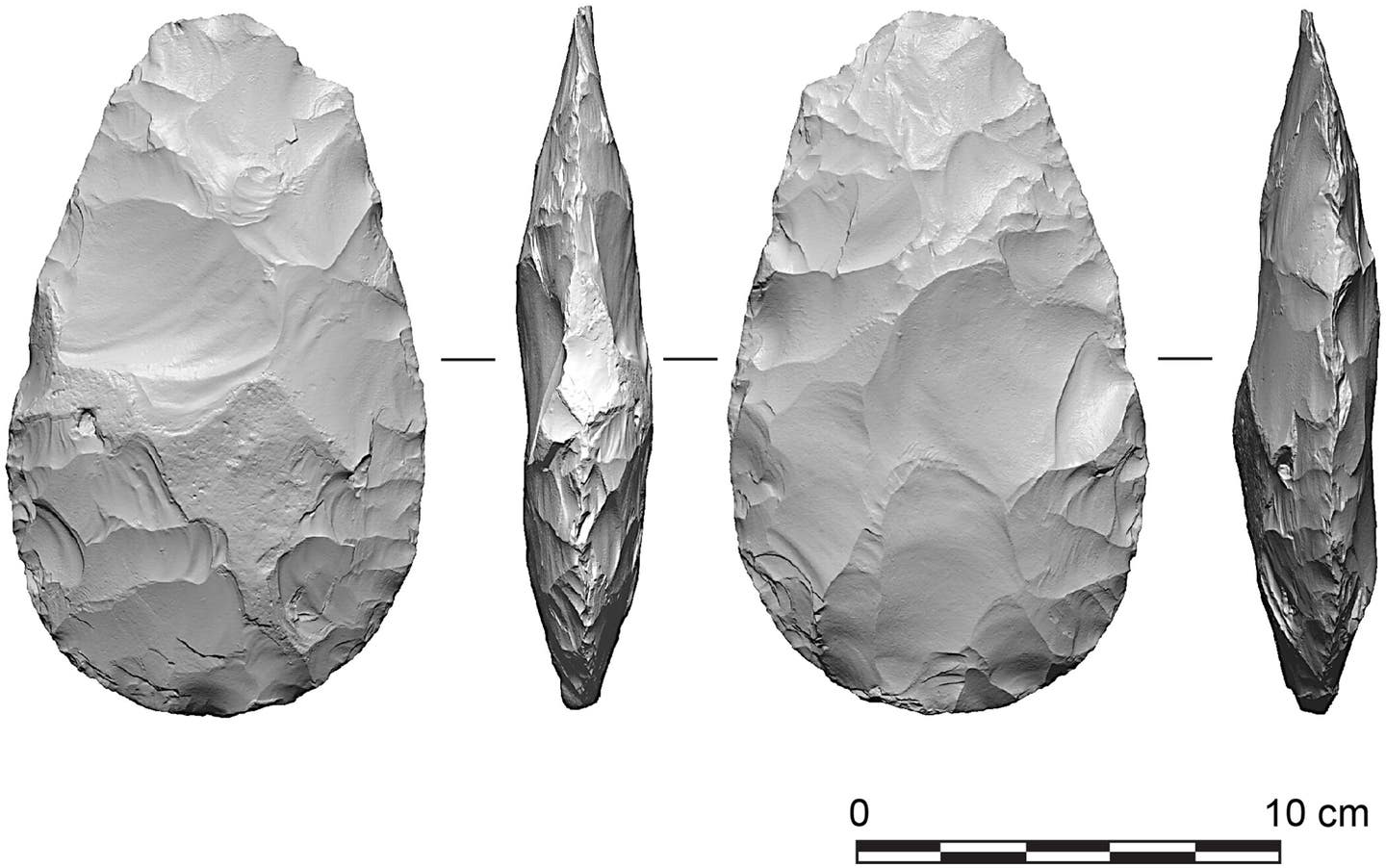New treatment kills several types of common cancer cells – helping millions worldwide
Scientists have uncovered a promising way to fight prostate cancer by targeting a single enzyme, PI5P4Kα, that can trigger cancer cell death.

Findings indicate that aside from prostate cancer, the treatment may also be effective against breast, skin, and pancreatic cancers. (CREDIT: CC BY-SA 4.0)
Scientists have uncovered a promising way to fight prostate cancer by targeting a single enzyme, PI5P4Kα. This discovery offers new hope for patients, especially those whose cancer has become resistant to standard treatments. By disrupting this enzyme, researchers believe they can trigger cancer cell death, potentially changing the course of treatment.
The study, published in Science Advances, suggests that this approach could extend beyond prostate cancer. Early findings indicate it may also be effective against breast, skin, and pancreatic cancers. If confirmed, this could open doors to broader cancer treatments.
For the first time, PI5P4Kα has been directly linked to prostate cancer, according to Brooke Emerling, Ph.D., an associate professor at Sanford Burnham Prebys and a co-senior author of the study. “We expect that it will prove relevant to other cancers as well,” she explains. The enzyme’s role in cancer progression makes it an attractive target for drug development.
Precision medicine has long aimed to treat cancer more effectively while limiting resistance. This discovery adds a powerful new option to that approach. By honing in on PI5P4Kα, scientists may have found a way to outmaneuver cancer’s ability to adapt to treatment.
Current therapies for prostate cancer focus on reducing testosterone and other androgens. While this can slow tumor growth, it’s not a permanent fix. Within five years, 10–20% of cases become resistant, allowing the disease to spread unchecked.
Understanding resistance is key to stopping it. Without new strategies, treatment options become increasingly limited. “Finding ways to overcome resistance is critical in the fight against prostate cancer,” Emerling stresses. This challenge has driven researchers to explore alternative pathways, such as the one controlled by PI5P4Kα.
Prostate cancer thrives by hijacking androgen signaling, fueling rapid tumor growth. Blocking this process has been effective, but resistance remains a major roadblock. As cancer cells adapt, they find new ways to survive, rendering many treatments useless.
“What’s remarkable is that we’ve found an enzyme that can be targeted against prostate cancer even in cases where treatments that lower hormones are ineffective or where resistance has developed,” says Emerling. This breakthrough could lead to a new class of treatments, giving patients more options when other therapies fail.
Related Stories
The research was inspired by observations made by Emerling’s colleagues at the University of Bern, led by co-senior author Mark A. Rubin. They noticed that patients with treatment-resistant prostate cancer had elevated levels of PI5P4Kα, indicating that this enzyme might be contributing to the cancer’s ability to resist therapy and continue growing.
Emerling’s team then demonstrated, through various prostate cancer models, that inhibiting this enzyme could indeed kill treatment-resistant cancer cells. “It was that initial observation from the patient data that really got us excited,” Emerling notes.
PI5P4Kα belongs to a group of enzymes known as PI5P4Ks, which are involved in lipid metabolism. Lipids, a broad category of molecules that includes fats, hormones, and many vitamins, play a crucial role in various bodily functions.
While cancer metabolism has been extensively studied, lipid metabolism has only recently emerged as a promising area for therapeutic development.
Emerling highlights the potential of targeting lipid metabolism in cancer treatment, describing it as an “unexplored treasure trove.” Researchers are now actively working to develop drugs that can inhibit PI5P4Kα, with several pharmaceutical companies also pursuing similar approaches. “We’re working to develop drugs to target this enzyme, and there are several companies out there developing their own drugs as well,” she says.
Given the current interest in this area of research, there is optimism about the future of this treatment strategy. Although no drug targeting PI5P4Kα is yet available, Emerling is hopeful that clinical trials are on the horizon. “There’s no drug yet, but I have high hopes that in the near future, we’ll have something in clinical trials. That would be amazing,” she concludes.
This discovery represents a significant step forward in the fight against prostate cancer and highlights the potential of targeting specific enzymes to overcome treatment resistance.
By continuing to explore the role of lipid metabolism in cancer, researchers are opening new avenues for the development of more effective therapies, offering renewed hope to patients facing the challenges of this devastating disease.
Symptoms of prostate cancer:
Prostate cancer may cause no signs or symptoms in its early stages.
Prostate cancer that's more advanced may cause signs and symptoms such as:
- Trouble urinating
- Decreased force in the stream of urine
- Blood in the urine
- Blood in the semen
- Bone pain
- Losing weight without trying
- Erectile dysfunction
Causes of prostate cancer:
It's not clear what causes prostate cancer.
Doctors know that prostate cancer begins when cells in the prostate develop changes in their DNA. A cell's DNA contains the instructions that tell a cell what to do. The changes tell the cells to grow and divide more rapidly than normal cells do. The abnormal cells continue living, when other cells would die.
Prostate gland: The prostate gland is located just below the bladder in men and surrounds the top portion of the tube that drains urine from the bladder (urethra). The prostate's primary function is to produce the fluid that nourishes and transports sperm (seminal fluid).
The accumulating abnormal cells form a tumor that can grow to invade nearby tissue. In time, some abnormal cells can break away and spread (metastasize) to other parts of the body.
Risk factors for prostate cancer:
Factors that can increase your risk of prostate cancer include:
- Older age. Your risk of prostate cancer increases as you age. It's most common after age 50.
- Race. For reasons not yet determined, Black people have a greater risk of prostate cancer than do people of other races. In Black people, prostate cancer is also more likely to be aggressive or advanced.
- Family history. If a blood relative, such as a parent, sibling or child, has been diagnosed with prostate cancer, your risk may be increased. Also, if you have a family history of genes that increase the risk of breast cancer (BRCA1 or BRCA2) or a very strong family history of breast cancer, your risk of prostate cancer may be higher.
- Obesity. People who are obese may have a higher risk of prostate cancer compared with people considered to have a healthy weight, though studies have had mixed results. In obese people, the cancer is more likely to be more aggressive and more likely to return after initial treatment.
Prevention of prostate cancer:
The Mayo Clinic believes that people can reduce their risk of prostate cancer if they:
- Choose a healthy diet full of fruits and vegetables. Eat a variety of fruits, vegetables and whole grains. Fruits and vegetables contain many vitamins and nutrients that can contribute to your health.
- Whether you can prevent prostate cancer through diet has yet to be conclusively proved. But eating a healthy diet with a variety of fruits and vegetables can improve your overall health.
- Choose healthy foods over supplements. No studies have shown that supplements play a role in reducing your risk of prostate cancer. Instead, choose foods that are rich in vitamins and minerals so that you can maintain healthy levels of vitamins in your body.
- Exercise most days of the week. Exercise improves your overall health, helps you maintain your weight and improves your mood. Try to exercise most days of the week. If you're new to exercise, start slow and work your way up to more exercise time each day.
- Maintain a healthy weight. If your current weight is healthy, work to maintain it by choosing a healthy diet and exercising most days of the week. If you need to lose weight, add more exercise and reduce the number of calories you eat each day. Ask your doctor for help creating a plan for healthy weight loss.
- Talk to your doctor about increased risk of prostate cancer. If you have a very high risk of prostate cancer, you and your doctor may consider medications or other treatments to reduce the risk. Some studies suggest that taking 5-alpha reductase inhibitors, including finasteride (Propecia, Proscar) and dutasteride (Avodart), may reduce the overall risk of developing prostate cancer. These drugs are used to control prostate gland enlargement and hair loss.
However, some evidence indicates that people taking these medications may have an increased risk of getting a more serious form of prostate cancer (high-grade prostate cancer). If you're concerned about your risk of developing prostate cancer, talk with your doctor.
Note: Materials provided above by The Brighter Side of News. Content may be edited for style and length.
Like these kind of feel good stories? Get The Brighter Side of News' newsletter.



